Lisa Jackson is part of Apple's executive team. A former Administrator of the U.S. Environmental Protection Agency (EPA) under President Obama now leads several Apple initiatives, including its environmental efforts.
Jackson currently holds the role of Vice President of Environment, Policy, and Social Initiatives. She reports directly to CEO Tim Cook.
In her position, she oversees Apple's goals of minimizing environmental impact. Her position handles "addressing climate change through renewable energy and energy efficiency, using greener materials, and inventing new ways to conserve precious resources."
Jackson also leads Apple's education policy programs, worldwide government affairs, and product accessibility.
Lisa Jackson - History at Apple
Fresh off her four-year tenure as EPA leader, Lisa Jackson joined Apple in May 2013 as environmental director.
Cook revealed Jackson's hiring in a May 2013 interview. At the time, he described her role as overseeing the iPhone, iPad, and Mac maker's green initiatives, including projects like a massive solar and fuel-cell farm in North Carolina.
In 2015, Apple named her Vice President of Environment, Policy, and Social Initiatives. That promotion also brought new responsibilities in addition to her environmental oversight. Those expanded duties include worldwide government affairs, education, accessibility, and social concerns.
As part of a company-wide memo announcing the new position, Apple said, "Lisa will apply her passion and her unique skillset to integrate teams across Apple and make our impact even greater. As part of her new role, Lisa will also take over management of our worldwide Government Affairs function."
Jackson still serves in that same position today.
In addition to her work at Apple, Lisa Jackson serves on the boards of Tulane, SF Film, Conservation International, the Clinton Foundation, and Emily's List.
Apple's Environmental Goals and Progress
Under Jackson's leadership, Apple breaks down its environmental goals into three key focus areas: climate change, resources, and smarter chemistry.
Climate change
Through its climate-change goals, Apple has achieved 100% renewable electricity for its facilities. It has also reached carbon neutrality for Apple's corporate emissions, including business travel and employee commute.
By 2030, Apple intends to become carbon neutral for its entire carbon footprint. It plans on doing the following to get there:
- Transition its entire manufacturing supply chain to 100 percent renewable electricity
- Reduce emissions by 75% of its 2015 levels
- Balance the remaining emissions with high-quality carbon removal projects
Resources
In the resources category, Apple has progressed to make products and packaging using only recycled or renewable materials, stewarding water resources, and sending zero waste to landfills.
The company's plan to achieve resource goals requires the following goals:
- Use only recycled and renewable materials in products and packaging
- Eliminate plastics in product packaging by 2025
- Minimize the use of freshwater resources in water-stressed locations
- Eliminate waste sent to landfill from corporate facilities and suppliers
Smarter chemistry
Apple's smarter chemistry goals include:
- Drive 100 percent transparency of chemical use in the supply chain and products
- Minimize exposure to chemicals that could be harmful to human health or the environment
- Integrate Smarter Chemistry innovation into the way Apple builds and designs products
In the fall of 2016, the company joined a global initiative called RE100, with the stated goal of 100 percent renewable energy. That proclamation followed a 2015 deal that had made Apple the largest corporate user of renewable power in the U.S.
The company first reached its goal of 100% renewable energy in April 2018. Lisa Jackson has said that the company's work on product sustainability should continue indefinitely.
"To be honest, I think it's going to go on forever — and I'll tell you why," Jackson said of Apple's environmental efforts in a 2019 interview. "It's like when we got to 100 percent renewable energy. In 2017, Tim [Cook] and I said we're now at 100 percent around the world, but to stay at 100 percent is constant work. Because we're constantly building new facilities, adding teams, adding stores, adding data centers — and all of those have to get to 100 percent renewable pretty quickly."
Lisa Jackson - Life and Career
Lisa Jackson was born as Lisa Perez on February 8, 1962, in Philadelphia, PA. She grew up primarily in New Orleans, LA.
She is married to Kenneth Jackson and has two children.
Jackson was a National Merit Scholar and attended Tulane University on a scholarship. She earned her bachelor's degree in Chemical Engineering from Tulane in 1983, and a master's in Chemical Engineering from Princeton in 1986.
Preserving ties to her alma maters, Jackson joined the Princeton board in 2013 and still sits on Tulane's board.
Jackson initially joined the EPA as a staff-level engineer in 1987 before quickly moving to the New York City regional office. She stayed there for 16 years.
She left the EPA in 2002 to join the New Jersey Department of Environmental Protection as the Assistant Commissioner of Compliance and Enforcement and Assistant Commissioner for Land Use Management.
Governor Jon Corzine appointed her as the New Jersey State Commissioner of Environmental Protection in 2006. Jackson later signed on as Corzine's Chief of Staff in December 2008. However, that position ended after only two weeks when a much larger-scale opportunity presented itself.
EPA Administrator
On December 15, 2008, President-Elect Barack Obama nominated Lisa Jackson as Administrator of the Environmental Protection Agency. The Senate confirmed her appointment on January 22, 2009.
Jackson laid out seven priorities for the EPA's future:
- Taking action on climate change
- Improving air quality
- Cleaning up communities
- Protecting America's waters
- Assuring the safety of chemicals
- Expanding the conversation on environmentalism and working for environmental justice
- Building stronger state and tribal partnerships
During her four years serving in that position, Jackson was responsible for the following projects:
- Spearheading stricter fuel-efficiency standards
- Setting new CO2 emissions regulations
- Authorizing the recognition of carbon dioxide as a health threat
- Proposing amending the National Ambient Air Quality Standards with stricter smog pollution limits
- Overseeing the EPA response to the Deepwater Horizon oil spill
As EPA Administrator, Jackson created principles to modernize the United States' chemical management laws. She called for increased innovation in protecting drinking water and announced new clean-air standards. Following the 2008 recession, Jackson's agency also invested in EPA job-creating projects.
Lisa Jackson was the first African-American to serve as EPA Administrator. She prioritized expanding the agency's outreach to historically underrepresented communities.
In December 2012, Jackson announced that she would step down as EPA Administrator. She reportedly resigned because she disagreed with Obama's plans to green-light the controversial Keystone XL oil pipeline.
Lisa Jackson - Quotes and Interviews
In November 2021, Jackson spoke about helping marginalized communities with issues surrounding environmental problems like pollution and global warming. That without help, they would be left behind.
"The truth of the matter is that we can't have environmental protection unless those communities that are most vulnerable are protected as well," she said. "The sector in general has a role to play in realizing that technology uses energy — and if we don't clean that energy, we are a part of the problem, not the solution."
As part of Apple's 2020 environmental progress report, Lisa Jackson wrote the following:
"The responsibility to protect our shared planet intersects every aspect of our lives. This year has offered humbling reminders that nature is bigger and more powerful than any one of us — and that our ability to solve worldwide challenges depends on historic innovation and collaboration.
"That's why Apple has dedicated our resources — and our best thinking — to considering the environment in everything we do: the energy that powers our operations, the materials in our devices, the companies we do business with, and the health and safety of those who make and use our products.
"We've led our industry in reducing our environmental footprint for years, but we know there is more to do. So we've set a groundbreaking new goal to further reduce our impact on the planet we all share: By 2030, we're committing to total carbon neutrality. We are already carbon neutral for our corporate emissions, including corporate travel — resulting from our use of 100 percent renewable electricity for our facilities and investing in high-quality projects that protect and restore forests, wetlands, and grasslands. And we're well on our way in our supply chain. But we're going further to cover our entire, end-to-end footprint. All the way down to the shipping that moves our products around the world and the energy used to power our customers' devices.
"But our journey is incomplete if the communities most impacted by environmental harms do not have a voice in our mission to address them. That's why a key component of our roadmap is an all-new Impact Accelerator for minority-owned businesses — so that our investments in renewable energy or carbon capture can help fight systemic barriers in our economy. That investment is part of our $100 million Racial Equity and Justice Initiative to expand opportunities for Black and Brown people in the areas of education, economic equality, and criminal justice reform.
"This initiative will support not just our carbon goal but all of our ongoing environmental ambitions. Like our visionary goal of closing the loop on our supply chain and to one day no longer mine materials from the earth. Many of our products now contain higher percentages of recycled material than ever before, but we won’t be content until that number hits 100 percent for all of our devices. Achieving this critical goal will also help us to further reduce our carbon footprint, and we're dedicating Apple's unmatched innovative capacity to get there.
"Perhaps most importantly, we are channeling our learnings and influence to bring others along. We're committed to supporting smart policies around the world that better protect the planet and make transitioning to a low-carbon future more efficient. And we've helped dozens of Apple suppliers transition to using clean energy. They've built a powerful new competitive advantage that will set them apart in the years ahead. And those who are holding out should know that the clock is ticking. Our commitment to the planet means working with partners who share in our mission.
"We hope the details in this Environmental Progress Report offer a model for others to copy. We are proud of what we've accomplished, but not so proud as to believe that these efforts alone are enough. In the urgent years ahead, we will all need to think differently and act urgently in order to build the safer, healthier, more equitable future we all know is possible. We're committed to doing our part."
Successes and struggles
In 2019, Jackson sat down with The Independent to talk about Apple's environmental successes and failures:
"We're making progress. Sometimes you wish you could speed it all up. We have 14 materials we've highlighted, and we don't have equal progress on them. But some of that's technology. Some of that's scale. Some of that's crazy things, like shipping regulations and how you can move materials around. So we have to work on all of those at the same time.
"If Apple is working on some brand new material, we're going to have to figure out how to recycle that. But we also work very closely to say: as you're speccing a material, is there a way to spec recycled material?
"We didn't grab a bunch of product designers or product engineers and bring them all into the environment team. First off, it's just not the way Apple works: the collaborative nature of design means if you're not sitting with the designers, maybe there's a problem. We kept everyone where they were, and started to build a virtual team of people around the company who, in addition to everything else they do, would have a sensitivity and understanding of our goals around climate change and materials. Over time, that group has gotten bigger and further up the chain - we regularly now have discussions with designers very early in the process.
"I think it helps a lot that the folks who run those groups at the high level are also really committed to it, and asking the tough questions.
"The role of government is to make that not be OK. If there are goals that we say as a society we want, like clean air, clean water, addressing climate change, being really efficient with materials [...] there's a role for enforcement and for holding people accountable."
The latest progress
In December 2020, Lisa Jackson spoke with Hello magazine:
"Every product that you buy will have a zero carbon footprint and also the use of that product will be zero carbon footprint. We're working around the world to transition to this clean energy fuel future quicker, so every customer can run their devices on clean energy.
"We're starting to see businesses talk about 2050 but not every business can say they will be carbon neutral by 2030 like Apple will. They can come up with aggressive commitments ... let's see real strong commitments, let's see 2030 included. I think the world knows this is really crucial to address climate change in the next ten years.
"Our partnership [with the Malala Fund] is three years old now, and Malala has been focusing on climate change of girls' education, sustainability and environmental protection. One of the things she will announce is that Apple is helping to fund new work on exactly that. This link between, what happens when you educate girls and why that is one of the most important things you can do to fight climate change.
"The younger generation have this idea of being successful, but this idea of success means you can't be doing good or right by the planet or right by your fellow humans is just wrong. They are insisting that success has to be tied to a broader set of metrics than money. It also has to mean leading the world better and addressing climate change."
In November 2021, Jackson told MarketWatch that all technology companies "have a responsibility" to the whole world.
"On the simplest level, air doesn't stay in one place and water doesn't stay in one place. You can pollute the air in one community, but you're actually polluting the air we all breathe. Climate change is a global problem; it's not a localized issue. Water pollution that happens far upstream can have a devastating impact on a community far downstream."
In July 2023, Jackson sat down to discuss racial equality, supply change management, and climate change with The Washington Post. When asked about Apple's use of cobalt in its lithium-ion batteries in devices like the iPhone, she spoke of how the company had plans to use 100% recycled cobalt by 2025.
"By 2025, all of the cobalt in all of the batteries we design and spec will be recycled cobalt. Why? Because a large part of our strategy here is that it is very difficult. We have been leading for years on trying to ensure that we know where the supply of many minerals, including cobalt, come from."

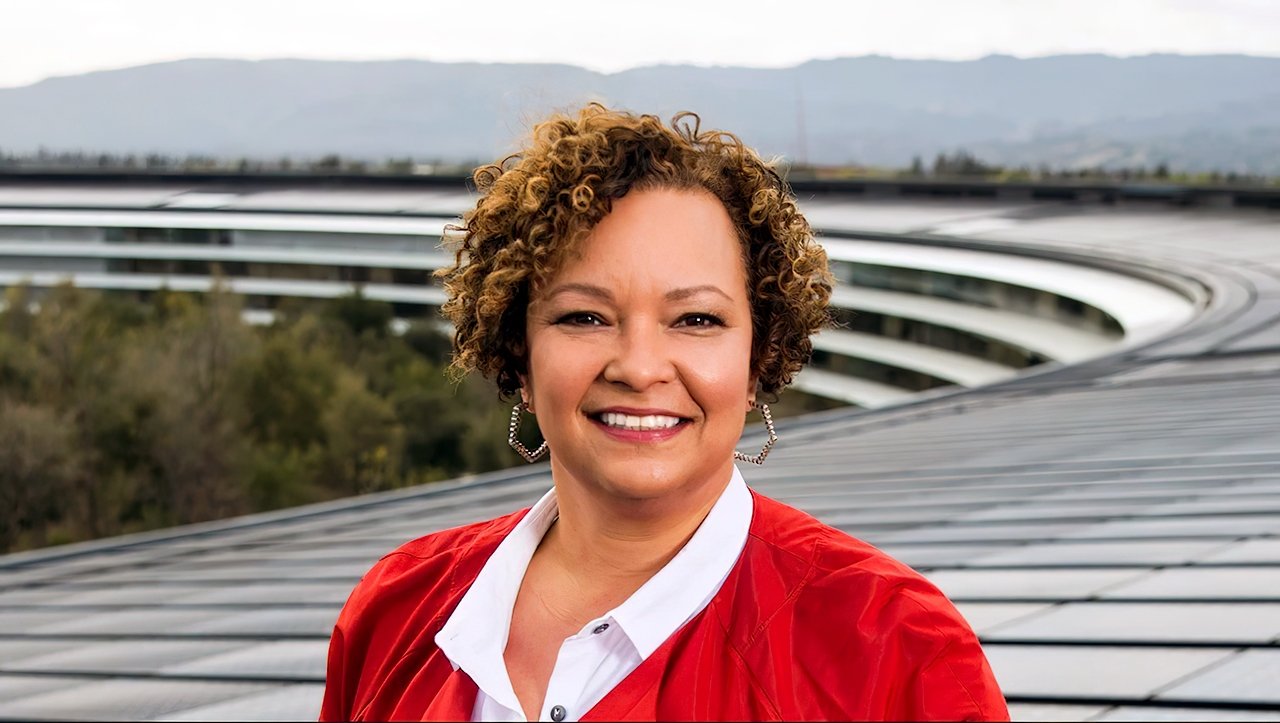
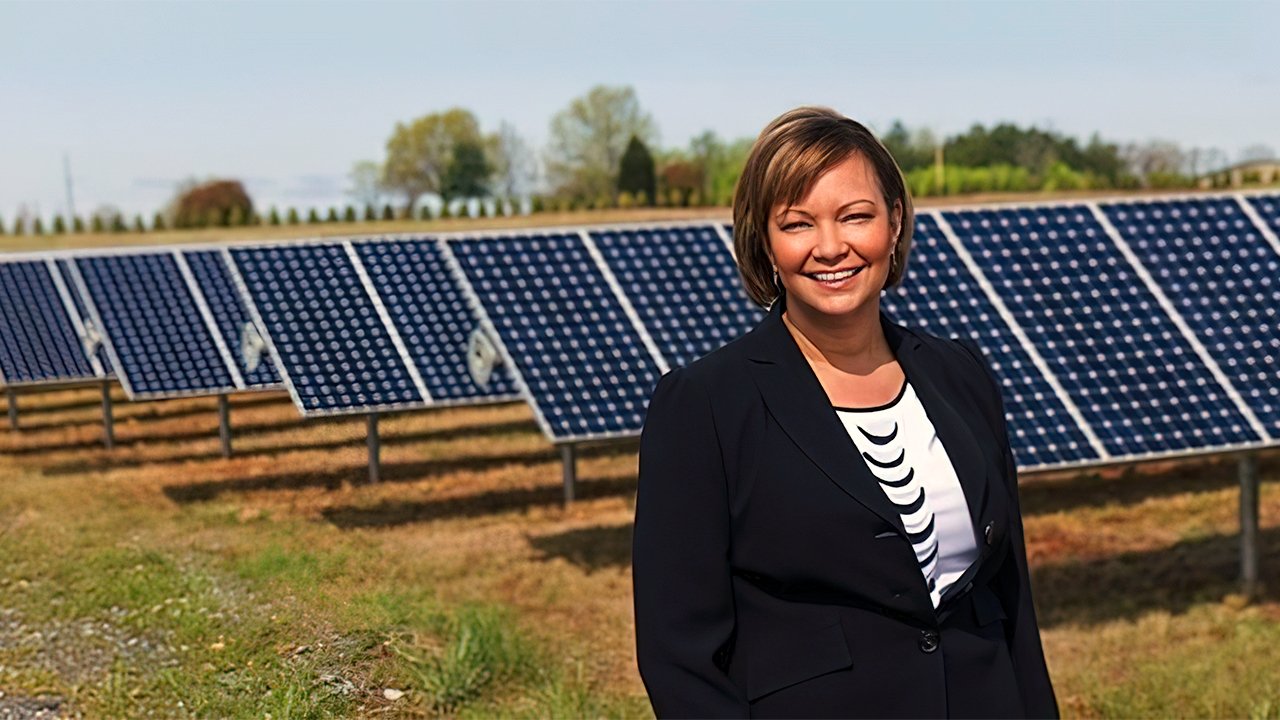
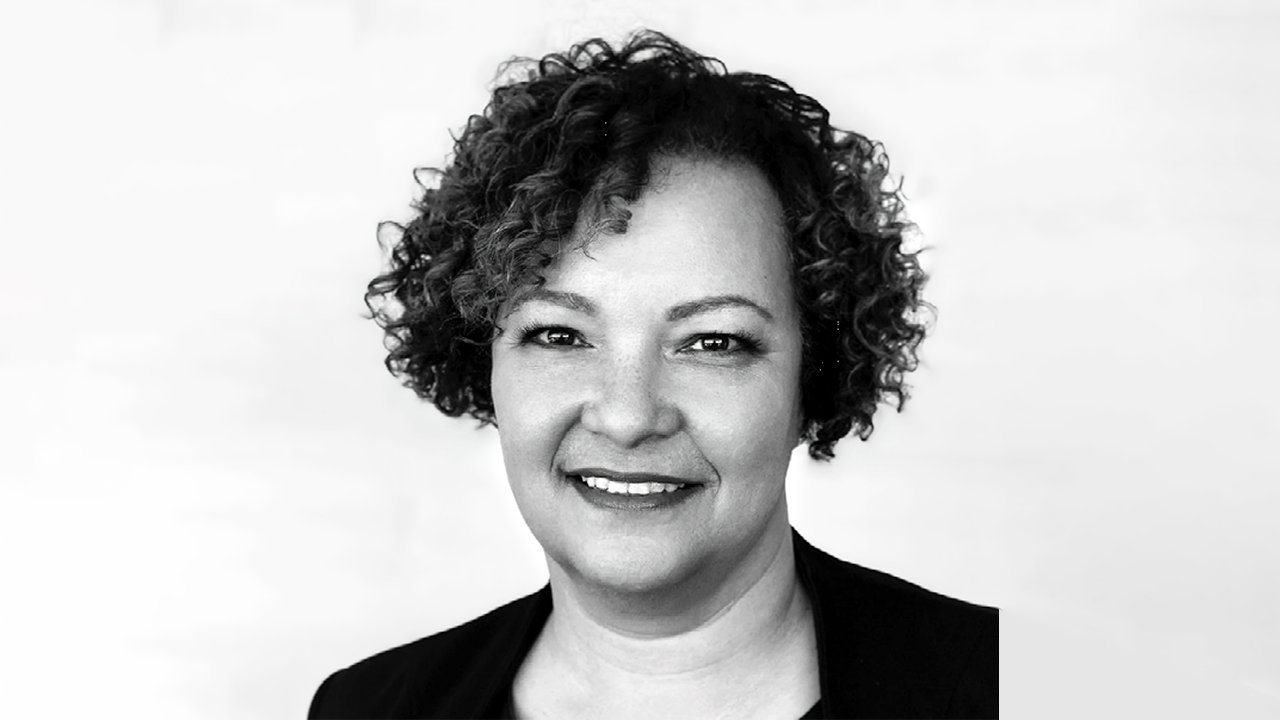
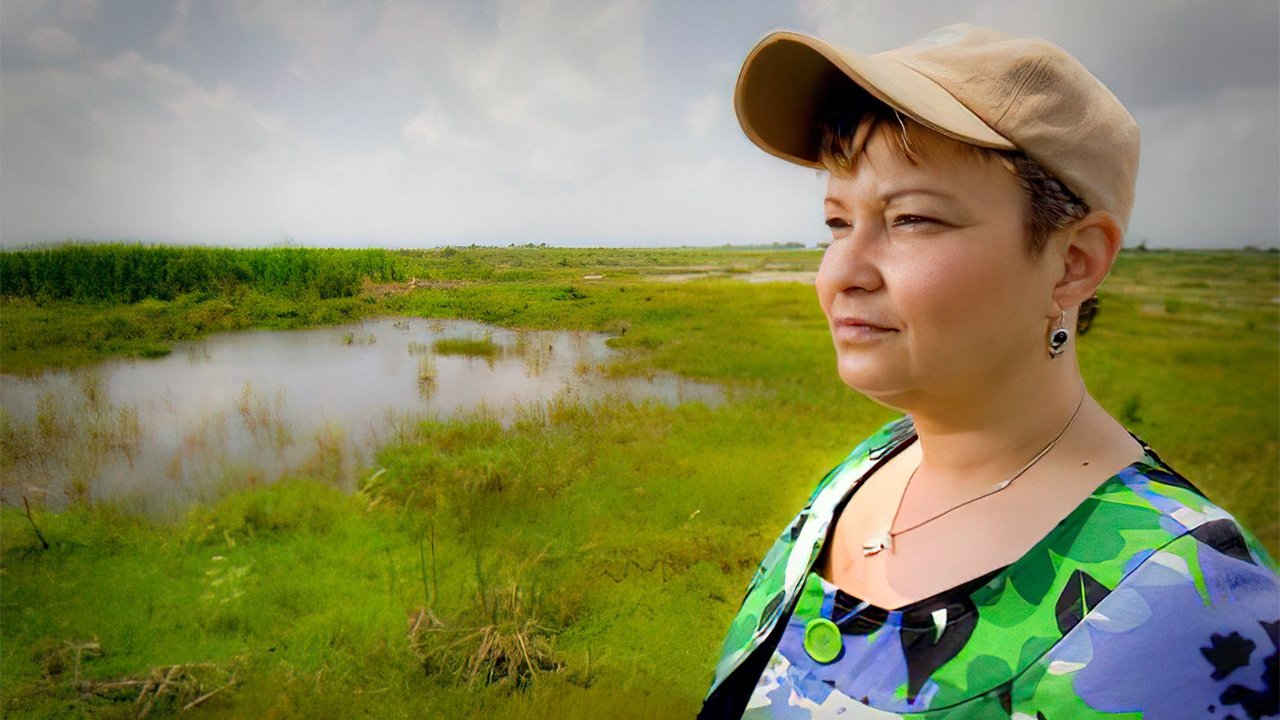
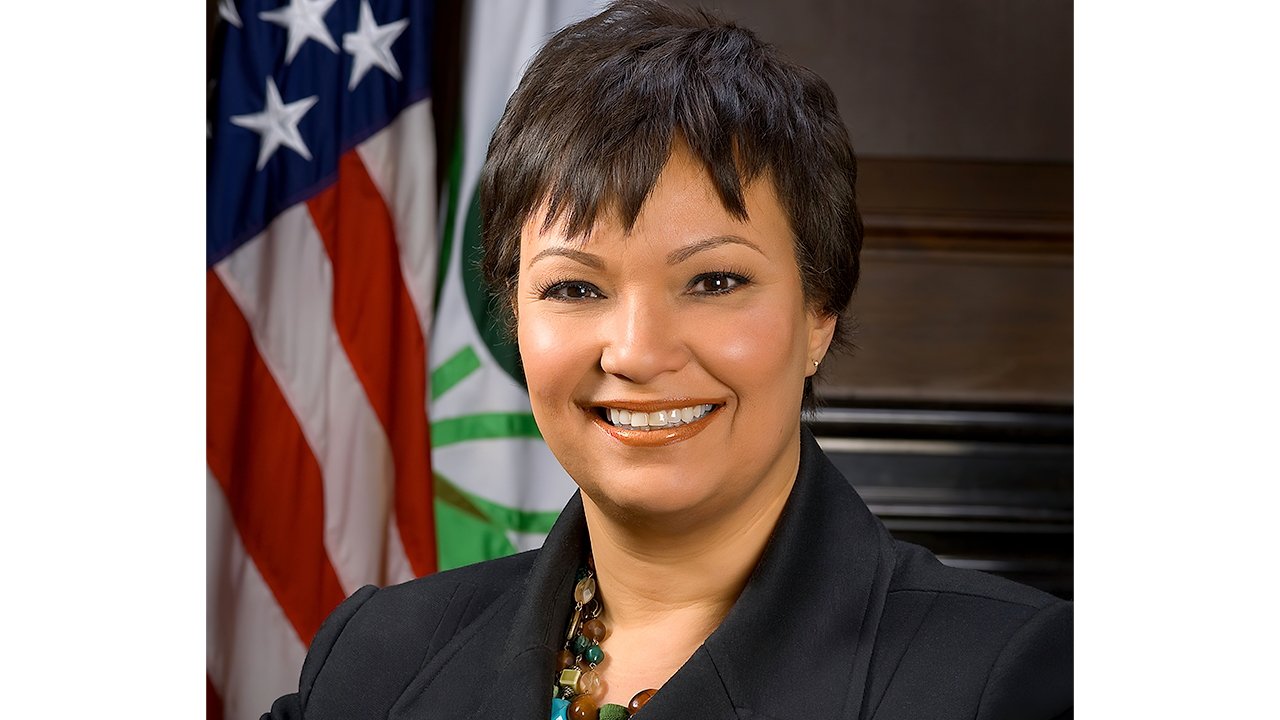

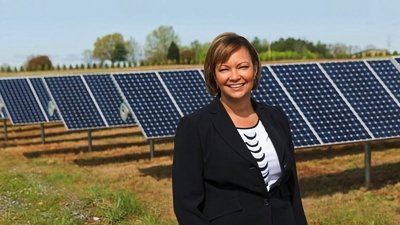
 William Gallagher
William Gallagher


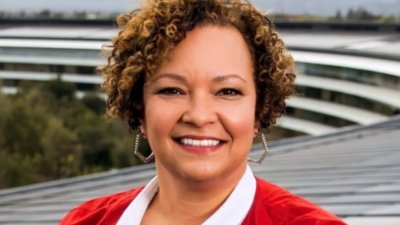
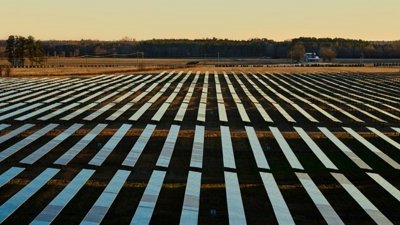



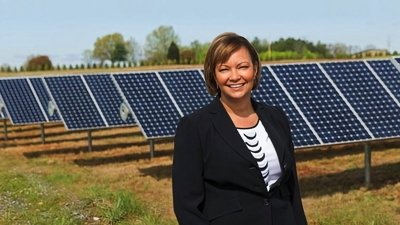
 Evan Selleck
Evan Selleck